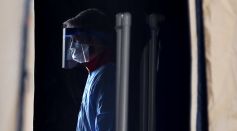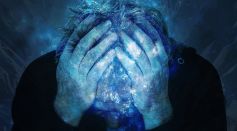Tags: SARS-CoV-2

Pzifer vs. Moderna vs Johnson & Johnson COVID-19 Vaccines Efficacy, Distribution: What Should You Get?

What Would Happen to COVID-19 After the Pandemic?

COVID-19 May Have Come from Bats, WHO Now Investigates How It Was Transferred to People

COVID-19 Mutation Has Caused the Pandemic to Become Unpredictable

COVID-19 South African Variant May Not Be as Vulnerable To Vaccines, Experts Say
New COVID-19 Strain Does Not Cause More Severe Illness

Neuroscientists Isolate Promising Tiny Antibodies Produced by a Llama in Fight Against COVID-19

Why Is COVID-19 So Much More Infectious Than Others? A 'Spike' Turns Out to Be the Cause

Chemical Compounds on Some Foods Can Constrain Sars-Cov-2 Enzyme
SARS-CoV-2's Genetic Structure Does Not Rule Out Laboratory Origin

How Pfizer and Moderna Vaccines Work Without Causing Accidental Infections

Chinese CDC Reports the Danger COVID-19 Postures for Patients with Lung Cancer

Chicken Antibodies in Warding Off COVID-19 Infections On Humans

Researchers May Have Found the Mother of SARS-CoV-2 Genomes
Scientists Discover How Coronavirus Uses "Genome Origami" to Infect and Replicate Human Cells
SARS-Cov-2 Can Survive on Surfaces for up to 28 Days, Says New Study

SARS-CoV-2 Infection Can Block Pain, Opening up Unexpected New Possibilities for Research Into Pain Relief Medication

Iodine Solution Can Kill Coronavirus in Less Than a Minute, Says Study

MassBiologics Discovers an Antibody That Can Fight Coronavirus
COVID-19: Children Might Carry Up to 100 Times More Viral Genetic Material Than Adults
Most Popular

If the Sun Were a Basketball, How Big Would the Earth Be? Space Scale Comparison Perfect for Kids

Top 10 Invasive Species List: Shocking Biodiversity Threats Ravaging Ecosystems Worldwide

10 Weird Things the Human Body Does—and the Science Behind These Biological Mysteries

Why Mega Typhoons Keep Getting Stronger: The Science Behind Typhoon Formation and Extreme Weather





